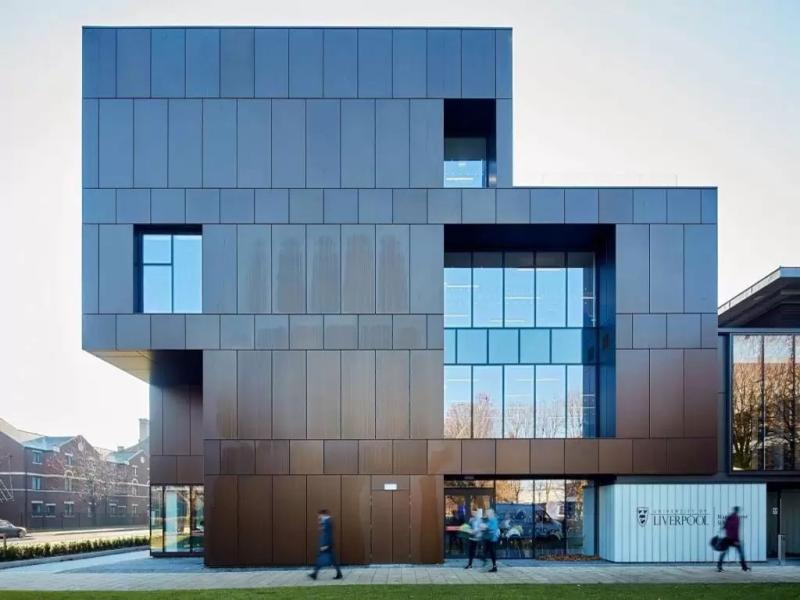The COVID-19 pandemic has had a significant impact on all of our lives and during these difficult times, many small businesses are struggling to cope. With additional financial strain and an uncertain future, business owners are increasingly relying on national and local government support measures to survive. In this context, the University of Liverpool Management School (ULMS) is helping to ease the burden on a number of local, small businesses through its Growth Catalyst network.
Established in 2014, the £1.6 million European funded (ERDF) Growth Catalyst Programme has successfully developed the leadership practices of entrepreneurs from just under 200 small firms, from a range of sectors, in the Liverpool City Region. Prior to COVID-19, the firms that completed the Programme outperformed others in the City-Region in terms of growth, investment and job creation. A total of 330 jobs were created by Growth Catalyst firms, adding almost £5m in GVA to the City-Region economy. The Programme’s combined organisational and economic impacts have been significant in an area which underperforms economically compared to the UK average, having fewer high growth small firms, lower employment levels and less productivity.
A key element in the success of Growth Catalyst has been the dynamic alumni network that the Programme has developed in the City-Region. Nine out of ten of the entrepreneurs that completed the Programme have remained in contact with other to share support, advice and do business together. This strong sense of community amongst alumni also extends to the Management School with increased engagement from alumni; a number of business owners provide mentoring to ULMS undergraduate students studying entrepreneurship modules as well as ‘live’ consultancy projects for our MBAs to tackle.
Since the onset of COVID-19, the ULMS Growth Catalyst team has been proactive in supporting small firms during these difficult times. First, relevant information, such as Government guidance on funding, furloughing etc. has been circulated to the Growth Catalyst network using social media and our mailing lists. Second, the team hosts weekly Zoom sessions to allow business owners to connect and share their experiences various issues such as accessing government support, dealing with the banks and sorting out staffing issues. As well as providing practical information, these sessions are helping to minimise isolation by presenting an opportunity for the business owners to talk to each other and share advice on issues such as managing stress, keeping in touch with their staff as well as planning for the future.
The ‘remote’ sessions have been helpful in gauging the ‘pulse’ of the local business community in order to focus on their needs and provide more targeted support. Business owners have commented that they really appreciate the opportunity to share and hear relevant advice from their peer group at a time when there is an overwhelming volume of information to navigate. Dr Benito Giordano, Programme Director for Growth Catalyst, commented “The level of engagement has been positive, with sessions proving to be beneficial, however, it is sobering to hear the many challenges that local small firms are facing. Over the coming months, we will continue to provide whatever support we can to try and make a difference in these very difficult circumstances.”
Members of the Growth Catalyst network have also been invited to attend the Management School’s online business webinars such as the recent session on Long Distance Leadership, which considered various leadership and management principles for those striving to motivate and lead teams remotely. Speakers included Dr Ian Lovegrove, who led a scientific team in both the UK and Antarctica, and the Management School’s Dean, Professor Julia Balogun. Both shared their insights and observations as well as their reflections on some of the challenges associated with leading teams remotely.
In summary, the example of the ‘remote’ business support that ULMS is providing via its Growth Catalyst network is a really good example of what Business and Management Schools can do to make a difference to help small firms during the pandemic. The need for such academic engagement will increase in the coming months (and beyond) as the challenges of COVID-19 intensify. The key learning from our remote sessions is that the added-value comes from the fact that we provided a forum for the small business owners to simply talk to each, share advice and their experiences. This is instead of trying to ‘talk at them’ and overload them with information. The remote technology was effective in helping to reduce the ‘social distance’ between the entrepreneurs at a time when they needed it most. Put simply, we provided them with an opportunity to speak to each other. Some things never change.
Authors
Dr Benito Giordano, Programme Director, Growth Catalyst
Richard Holloway, Project Manager, Growth Catalyst
Robert Hannah, Project Administrator, Growth Catalyst
Hazel Kennedy, Business Development Officer, University of Liverpool Management School
